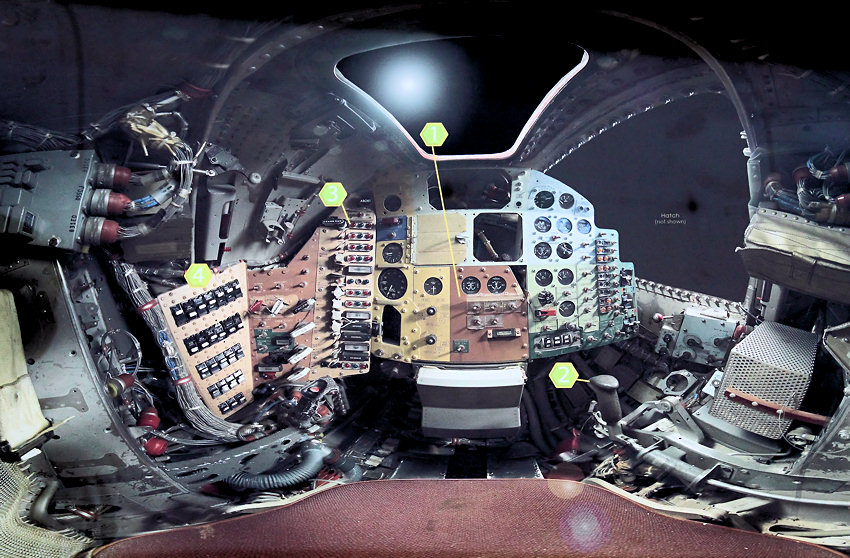
Mercury Capsule 15 Raumkapsel
6 Images On September 9, 1959, NASA launched this unoccupied Mercury spacecraft from Cape Canaveral, Florida, on a suborbital flight that lasted 13 minutes. Its launch was the second in the Mercury program and the first using an Atlas booster.
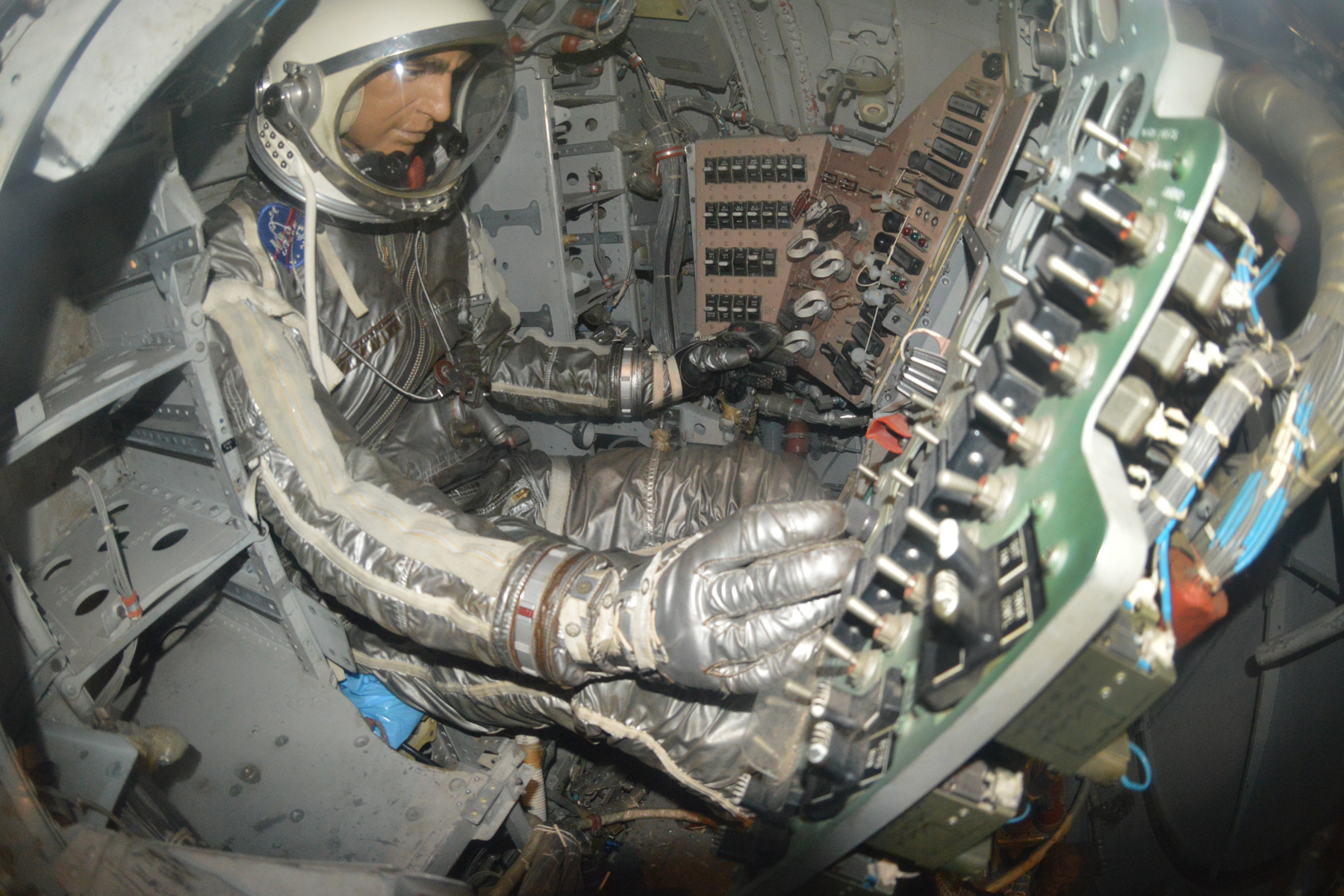
Mercury Spacecraft > National Museum of the US Air Force™ > Display
Project Mercury was the first human spaceflight program of the United States, running from 1958 through 1963. An early highlight of the Space Race, its goal was to put a man into Earth orbit and return him safely, ideally before the Soviet Union.Taken over from the US Air Force by the newly created civilian space agency NASA, it conducted 20 uncrewed developmental flights (some using animals.

Mercury Friendship 7 Cockpit NASA Capsule Teak Wood Etsy
Mercury spacecraft's instruments and controls, 1961 The North American X-15 spaceplane, 1960s Gemini spacecraft's displays and controls, 1965 Soyuz (1967-) Apollo Lunar Module, 1968-1972.
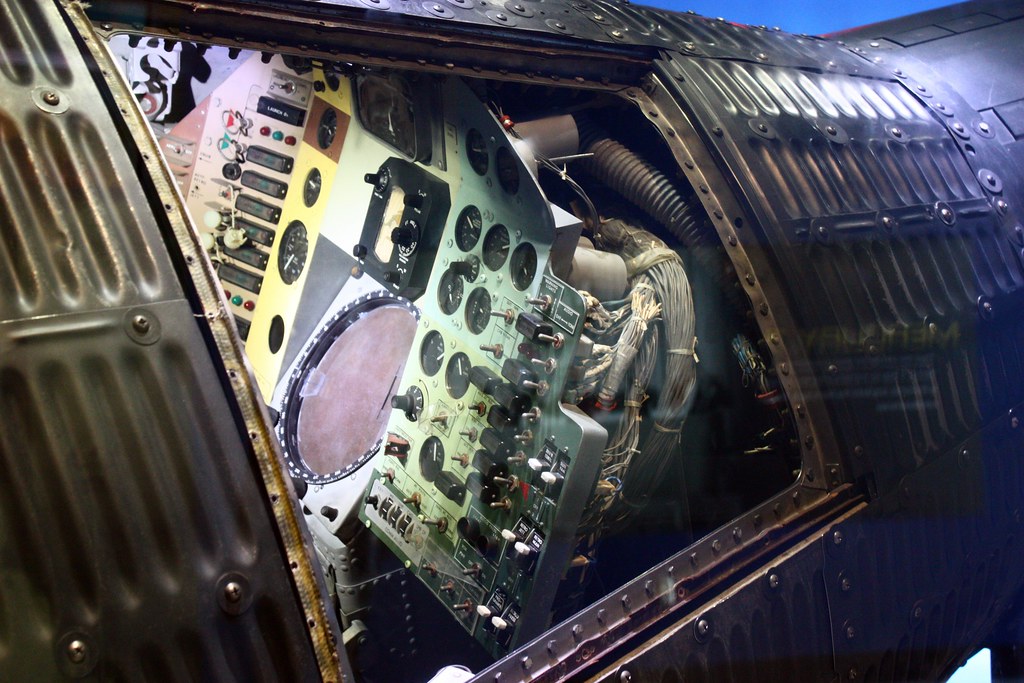
Inside a Mercury capsule Inside a Mercury capsule Flickr
The Mercury Seven were the group of seven astronauts selected to fly spacecraft for Project Mercury.They are also referred to as the Original Seven and Astronaut Group 1.Their names were publicly announced by NASA on April 9, 1959; these seven original American astronauts were Scott Carpenter, Gordon Cooper, John Glenn, Gus Grissom, Wally Schirra, Alan Shepard, and Deke Slayton.
The cockpit of the Endeavour Space Shuttle space
Recreating the Mercury capsule on a small budget was no easy task. The cockpit took a lot of research: we painstakingly collected various photos, diagrams and line drawings from various sources and used them to map out our set design. Our first challenge was accurately determining the size of the cockpit and the control panels inside.

The Aero Experience Inside Mercury and Gemini Exclusive Look Inside America's First Manned
The heat shield of the Mercury Friendship 7 capsule shows the scars of reentry back into Earth's atmosphere. While the heat shield successfully protected the capsule from burning up during reentry, this was not an assured conclusion. Prior to reentry, NASA Mercury Control became concerned that the heat shield had come loose.

The Aero Experience Inside Mercury and Gemini Exclusive Look Inside America's First Manned
One of the earliest spaceships was the Gemini capsule. It looked a lot like the Mercury capsule. You can tell this is a Gemini because it's got the twins, two seats, Gemini. But this was one of the very first space ships, as simple as we could make it, but a big tradeoff between all of the things we needed. Essentially it's a little cockpit.
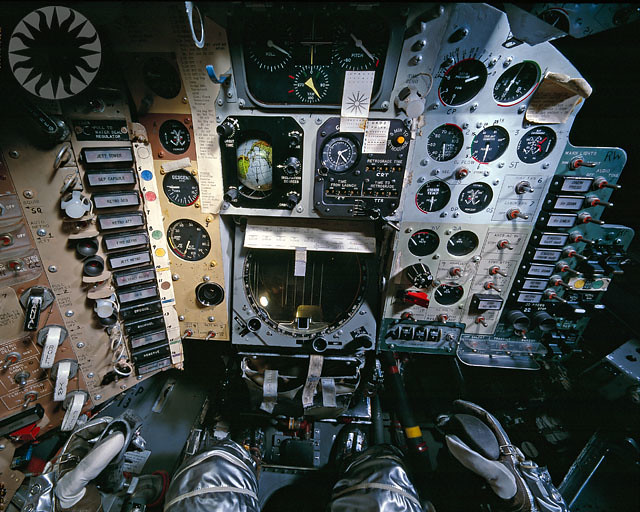
Mercury Capsule Friendship 7 Cockpit, Mercury Capsule Frie… Flickr
Adam shows off an incredible replica of the Mercury Friendship 7 space capsule cockpit that was a project for his workshop assistants Mel Ho and Freddy Schramm. The intricate details of this.
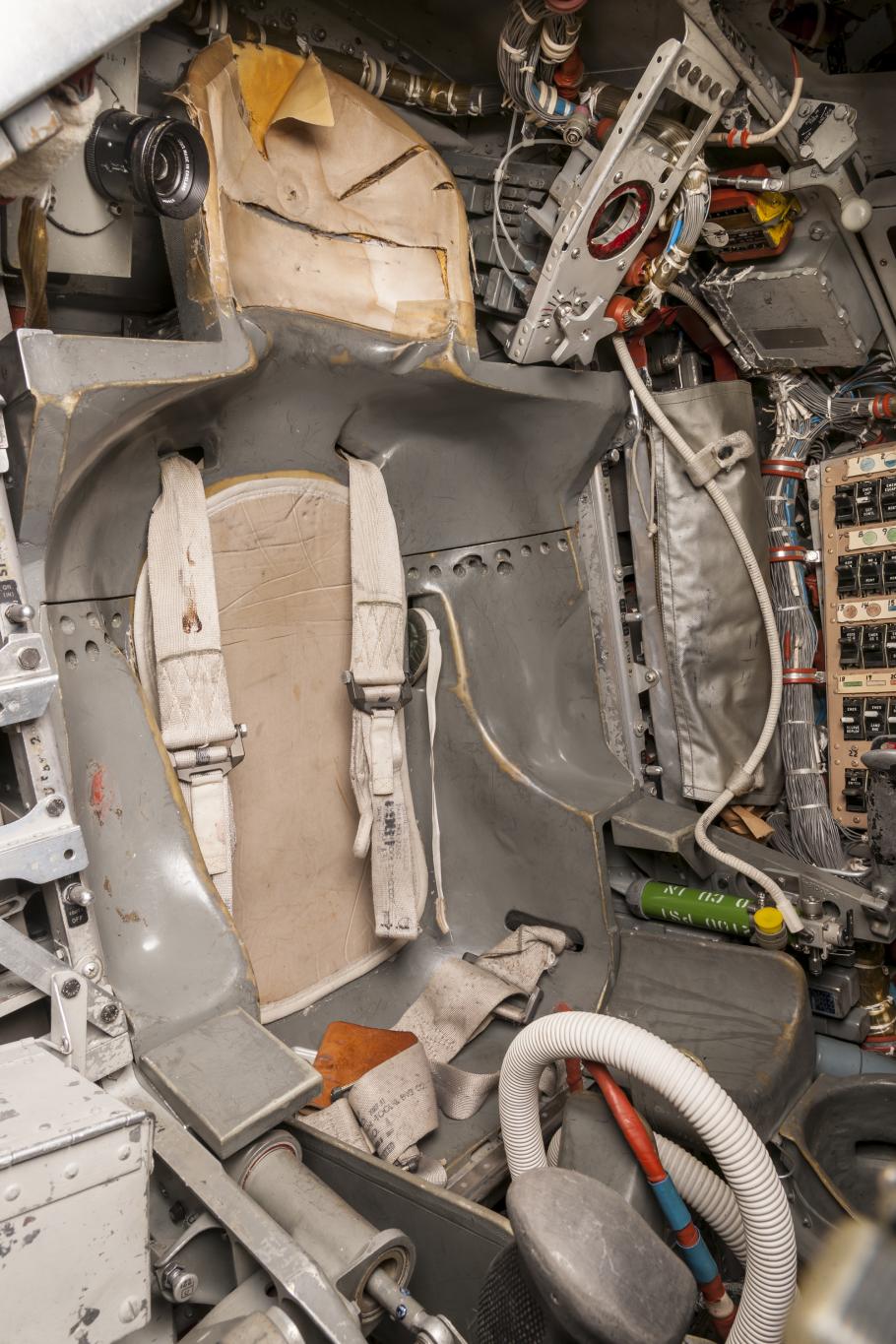
A Closer Look at the Friendship 7 Spacecraft
Project Gemini (IPA: / ˈ dʒ ɛ m ɪ n i /) was the second United States human spaceflight program to fly. Conducted after the first, Project Mercury, and while the Apollo program was still in development, Gemini was conceived in 1961 and concluded in 1966. The Gemini spacecraft carried a two-astronaut crew. Ten Gemini crews and 16 individual astronauts flew low Earth orbit (LEO) missions.

The Aero Experience Inside Mercury and Gemini Exclusive Look Inside America's First Manned
NASA On May 15, 1963, Gordon Cooper departs the crew quarters at Hangar S for the trip to Launch Pad 14 for the Mercury Atlas-9 mission to orbit the Earth 22 times. Following astronaut Cooper to.

Mercury Friendship 7 Cockpit; NASA Capsule Posters & Prints
Mercury-Atlas 9 was the final crewed space mission of the U.S. Mercury program, launched on May 15, 1963, from Launch Complex 14 at Cape Canaveral, Florida.The spacecraft, named Faith 7, completed 22 Earth orbits before splashing down in the Pacific Ocean, piloted by astronaut Gordon Cooper, then a United States Air Force major.The Atlas rocket was No. 130-D, and the Mercury spacecraft was No. 20.

Mercury Spacecraft Cutaway [775 x 600] • /r/MachinePorn Project mercury, Spacecraft, Nasa
Le Pass'Région 7 À travers le PASS'Région, c'est une véritable carte du quotidien qui est proposée aux jeunes. Avec sa technologie unique, c'est l'ensemble de ses usages qui se retrouve bouleversé pour devenir la carte

Mercury Capsule
Cockpit Procedures Trainer. Date: 2021 | Photo by: Chris Griffith. A Mercury Procedures Trainer built by McDonnell Aircraft, manufacturers of the Mercury spacecraft. It is stenciled Langley Research Center, where the Mercury astronauts received their training. Type. Mercury.

mercury spacecraft cockpit Pesquisa Google Seattle washington travel, Washington travel
Adam puts you in the seat of his Mercury Friendship 7 space capsule cockpit replica to pore over the details of every accurately recreated button, switch, and dial. If you liked this episode, check out the Tested VR app in the Oculus Store!

Pin by James Sweeney on SciFi Cockpits Nasa, Project mercury, Space travel
The capsule is modelled after the Mercury Familiarization Manual SEDR 104 (5/20/1962) used by MA-7 (Carpenter) and MA-8 (Schirra) and contains most of the simple and advanced controls from all the different Mercury Capsule configurations, including the satellite clock, the Earth Path Indicator, the electrical system using 3 main fuel cells, two.

Adam Savage's Mercury Space Capsule Cockpit Replica! YouTube
Take a Look at These Cockpits Many visitors express the wish to see the interiors of aircraft and spacecraft on display in the Museum. But to protect these historic treasures, they must be displayed behind barriers, which makes it impossible to see inside.